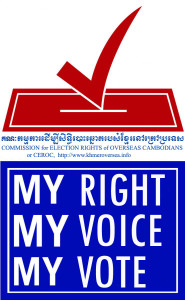Revisiting Cambodia’s Laws on Nationality and Immigration

A major reason the issue has persisted since the passage of the Law on Nationality in 1996 is that the law itself is severely flawed. Superseding a more liberal law that had been in place since 1954, the new law was aimed at limiting Vietnamese access to Cambodian citizenship by requiring that a child born in Cambodia would acquire Cambodian citizenship only if both parents were born in Cambodia (the 1954 law required one parent) and living legally there (the 1954 law made no reference to legal status). It is well understood that when Vietnamese Cambodians returned to their homelands in Cambodia after having fled the pogroms of the Lon Nol regime (1970 to 1975) or having been deported under the Khmer Rouge regime in fall 1975, few returned in possession of documents proving their birth, let alone the birth of their parents. Requiring documentation for this population of former exiles was and continues to be an impossible hurdle for most to overcome. The result is now three generations of Vietnamese Cambodians who live as stateless individuals.
Since 1996, the Laws on Nationality and Immigration have governed the civic status of ethnic Vietnamese in Cambodia. Increasingly, the CPP’s opposition has railed against the government’s administration of those laws in general terms, rarely offering any specific proposals as to what they would do differently in their treatment of the large ethnic Vietnamese population other than “enforce the law.” The CPP, meanwhile, has generally remained silent on the matter, being largely responsible for overseeing policies that have enabled both undocumented immigration and continuing statelessness on the part of large swaths of the Vietnamese community.
In recent days there have been signals that change may be afoot. This week’s swearing in of heads of new Interior Ministry departments of identification and immigration came on the heels of opposition leader Sam Rainsy’s surprising statements that 250,000 ethnic Vietnamese might be eligible for citizenship under a CNRP administration.
